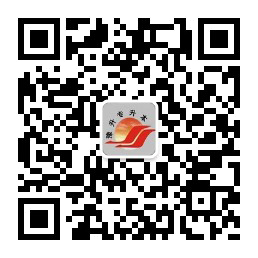【经典例题】
1. If my lawyer _______ here last Saturday, he _______ me from going.
A. had been; would have prevented B. had been; would prevent
C. were; would prevent D. were; would have prevented
2. If I had worn my overcoat, I _______cold.
A. won’t have caught B .couldn’t have caught
C. won’t catch D. wouldn’t catch
3.—If he ______ , he ______ that food.
—Luckily he was sent to the hospital immediately.
A. was warned; would not take B. had been warned; would not have taken
C. would be warned; had not taken D. would have been warned; had not taken
4. I didn’t see your sister at the meeting. If she _______, she would have met my brother.
A. has come B. did come C. came D. had come
【答案与解析】
1.A.本题考查虚拟语气。因为从句表示与过去事实相反的假设,故从句谓语动词用过去完成时,而主句谓语动词用would have +过去分词形式。
2.B.本题考查虚拟条件句中主句谓语动词的使用。因为从句用了过去完成时,可知主句谓语动词用would / could have +过去分词形式。根据句意,可知选B。
3.B. 根据答语,可知本题考查与过去事实相反的虚拟语气。故从句谓语动词用过去完成时,而主句谓语动词用would have +过去分词形式。
4.D. 根据句意“在会上我没有看到你的姐姐。如果她来的话,她就见到我哥哥了”可知,这是考查对过去事实的虚拟。主句用could have done,故从句谓语动词应该用过去完成时。
【重点归纳】
一、虚拟条件句的类别
虚拟条件句可分为三类:一类是叙述与现在事实相反的情况;一类是叙述与过去事实相反的情况;另一类是叙述与将来事实相反的情况。其主句和从句的谓语动词构成如下:
1. 与现在事实相反
条件从句用过去时(be动词的过去式一律用were),主句用would (should/ might / could)+动词原形”。如:
If I were you, I would accept the invitation to the party.
如果我是你的话,我将接受去舞会的邀请。
If I knew her well, I would tell you about her.
如果我很了解她的话,我将告诉你关于她的事情。
2. 与过去事实相反
条件从句用过去完成时,主句用“would /should/ might / could + have +过去分词”, 如:
If you had been there last night, nothing would have happened.
如果你昨天晚上在那儿的话,就没有什么事情发生了。
If I had got up earlier, I would have caught the first bus.
如果我起得更早一些的话,就赶上头班车了。
3.与将来事实相反
条件从句用过去时或者“were to + 动词原形”或者“should+ 动词原形”,主句用“would (should/ might / could)+动词原形”, 如:
If it were Saturday tomorrow, we wouldn’t have an exam.
如果明天是周六的话,我们就不考试了。
If you were to visit the school tomorrow, you would see Professor Smith.
如果你明天去参观学校的话,你就会看到史密斯教授。
If it should rain tomorrow, the sports meet would be put off until next Friday.
如果明天下雨的话,运动会将被推迟到下周五举行。
【特别提示】
在虚拟条件句中,谓语动词按照“后退一步法”使用,即:与现在事实相反,从句中用一般过去时;与过去事实相反,从句中用过去完成时;与将来事实相反,从句中用过去将来时。
二、虚拟条件句中的省略与倒装
如果if虚拟条件句中有were, had, 或者should等词时,可以省略if,把这些词放在主语前,形成倒装句。如:
If I should meet her (Should I meet her), I would tell her.
如果我遇见她的话,我就告诉她。
If I were in your position (Were I in your position), I would do it better.
如果我在你的位置上,我会做得更好。
If they had made preparations (Had they made preparations), they would have succeeded.
如果他们做了准备的话,他们就已经成功了。
1. —My cat’s really fat.
—You ______ have given her so much food.
A. wouldn’t B .couldn’t C. shouldn’t D. mustn’t
2.—How’s your tour around the North Lake? Is it beautiful?
—It _____ be, but it is now heavily polluted.
A. will B. would C. should D. must
3. I told your friend how to get to the hotel, but perhaps I _____ have driven her there.
A. could B. must C. might D. should
【答案与解析】
1.C。shouldn’t have done表示“本来不应该做某事而实际做了”。
2.C。根据句意,“本来这个湖应该是很漂亮的,但是现在被严重污染了”可知选C。should 在这里表示“本来应该……,暗含着实际上不……”之意。
3.D。should have done表示“本应该做某事而实际上未做”,本句意为:“我告诉你朋友该怎么到达旅馆了,但是也许我应该开车把她送到那儿去”。
【重点归纳】
1. 错综时间条件句:
有时在非真实条件句中,主句谓语动词所表示的动作和条件从句中谓语动词所表示的动作并不同时发生,这时主句和从句的谓语动词要根据各自所指的不同时间选用适当的虚拟语气形式。如:
Had I taken my umbrella with me when I came out this morning, I should not be wet now.
如果我今天早上出来的时候带着伞的话,现在就不会淋湿了。(从句说的是过去的事情,而主句说的是现在的事情)
If you had followed the doctor’s advice, you would be all right now.
如果你(那时)听从我的建议的话,现在就不会有事了。(从句说的是过去的事情,而主句说的是现在的事情)
If I hadn’t finished my composition by now, I would be working on it tomorrow.
如果到现在为止我还没有完成作文的话,我明天还要接着写。(从句说的是现在的事情,而主句说的是将来的事情)
2.含蓄虚拟条件句:
有时一个假设的情况并不用条件从句表示,而用其它方式来表示,这样的句子叫含蓄条件句。主要有以下几种情况。
1) 用with, without,but for等介词短语来替代条件从句, 它们都可以转换成由if引导的虚拟条件句。如:
We might have died without your help. =We might have died if you hadn’t helped us.
如果(那时)没有你们的帮助,我们可能已经死了。
Without the sun, nothing would grow. = If there was no the sun, nothing would grow.
没有太阳,万物都不能生长。
2) 用or, otherwise, but that, suppose/ supposing (that), provided / providing (that) 等引导的虚拟语气。如:
You didn’t come yesterday, or you would have seen him.
你昨天没有来,否则的话,你就已经看到他了。
I was very busy last week, otherwise I would have come to see you.
我上周很忙,否则的话,我就来看你了。
Supposing I was still a little child, I would study hard from now on.
假如我还是一个小孩子的话,我将从现在开始努力学习。
3) 通过上下文来表示虚拟:这种情况下,需要加以分析。
I would have given you more money, but I was so poor then.
我(那时如果有钱的话)就可以给你更多的钱了,但是我当时太穷了。
I would have called you, but I forgot your telephone number.
我本来可以给你打电话,但是我(那时)忘了你的电话号码。
Having known the fact in time, we couldn’t have said that. = If we had known the fact in time, we couldn’t have said that.
如果我们(那时)及时知道事实的话,就不会说那件事了。
Any man in his position would have done that.
处于他那个位置的任何人都会那样做的。
4)由should +动词原形或者should/could/might have +过去分词构成的虚拟语气。
种情况下,虚拟条件句经常省略,而只剩下主句结构,如:
I should have told you that, but I was afraid that you couldn’t accept the fact.
我本应该告诉你那件事,但我担心你不能接受这个事实。
Tom, you are so lazy! This work should have been finished hours ago.
汤姆,你太懒了!这个工作本应该几个小时之前完成。
3. 在if it were/had been not for …句型中的虚拟语气
If it were not for…,表示对现在事实的假设;If it had not been for…,表示对过去事实的假设。
If it were not for the Internet, everything would be very difficult.
要不是互联网,一切都会变得很难。
Had it not been for your overcoat, I would have died.
要不是你那件大衣,我就被冻死了。
















